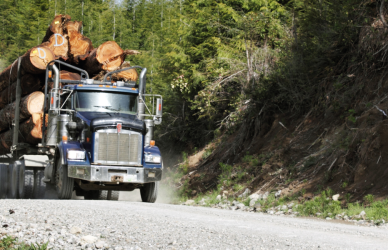As a trucker, navigating the roads can be an intense and demanding experience, especially when confronted with road rage incidents and aggressive drivers. These encounters not only pose physical risks but can also have a profound impact on the mental and emotional wellbeing of truckers. In this blog post, we will explore the connection between road rage incidents, stress, and anxiety in truckers, while providing coping strategies and tips for safely diffusing these situations. Additionally, we will delve into the role that trucking companies play in addressing road rage incidents among their drivers, ensuring a safer and healthier environment for all.
The Connection between Road Rage Incidents, Stress, and Anxiety in Truckers
Road rage incidents can trigger significant stress and anxiety in truckers, which can have long-lasting effects on their overall wellbeing. The constant pressure of driving a large vehicle, coupled with the unpredictability of other drivers, can heighten tension on the road. Being exposed to aggressive behavior, such as tailgating or verbal confrontations, further exacerbates stress levels. Over time, these repeated incidents can contribute to chronic stress and anxiety, impacting both mental and physical health.
Coping Strategies for Dealing with Road Rage Incidents
Stay Calm: Keeping a calm demeanor is crucial when faced with road rage incidents. Take deep breaths, maintain composure, and avoid responding with aggression.
Distance and Avoidance: Whenever possible, create distance between your truck and the aggressive driver. Change lanes or take an alternative route to avoid further confrontation.
Do Not Engage: Refrain from retaliating or engaging in aggressive behavior. Instead, focus on your own safety and well-being.
Contact Authorities: If the situation escalates or if you feel threatened, contact local law enforcement and provide them with pertinent information about the incident.
Practice Self-Care: Engage in stress-reducing activities outside of work, such as exercise, meditation, or hobbies, to help manage the accumulated stress from road rage incidents.
Tips for Safely Diffusing Road Rage Incidents
Avoid Eye Contact: Direct eye contact can sometimes escalate an aggressive situation. Instead, focus on the road ahead and maintain your attention on driving safely.
Use Non-Verbal Communication: Utilize friendly gestures, such as a wave or a nod, to signal goodwill and diffuse tension.
Ignore Provocations: If the aggressive driver attempts to provoke a response, do not engage. Stay focused on your own driving and safety.
Seek Support: Reach out to fellow truckers or support groups to share experiences and gain insights into managing road rage incidents. Their advice and empathy can be invaluable.
The Role of Trucking Companies in Addressing Road Rage Incidents
Trucking companies have a crucial role to play in ensuring the well-being of their drivers and addressing road rage incidents. Below are some key actions companies can take.
Training Programs: Implement comprehensive training programs that educate drivers on how to handle road rage incidents and equip them with effective coping strategies.
Communication Channels: Establish open lines of communication where drivers can report road rage incidents, enabling the company to take appropriate action and provide support.
Support Resources: Offer resources such as counseling services or employee assistance programs to help drivers cope with stress, anxiety, and trauma resulting from road rage incidents.
Safety Policies: Develop and enforce safety policies that prioritize the prevention of road rage incidents and promote a culture of professionalism and respect among drivers.
Advocacy and Awareness: Collaborate with industry organizations to raise awareness about road rage incidents and advocate for improved road safety measures. By taking a proactive stance, trucking companies can contribute to a safer and healthier work environment for their drivers.
Dealing with road rage incidents and aggressive drivers as a trucker is a challenging aspect of the job, with potential implications for both physical and mental well-being. Together, by promoting respect, fostering open communication, and prioritizing driver well-being, we can work towards a safer and more harmonious road experience for everyone.











